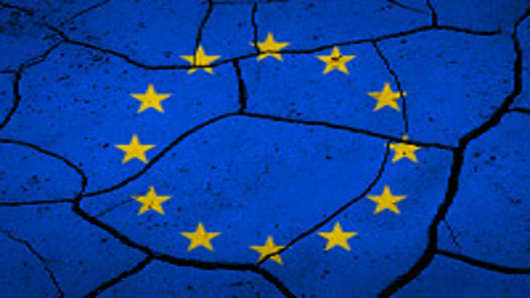If European leaders succeed in putting in place a fifty-percent haircut on Greek sovereign debt without triggering credit default swap payments, they may end up destroying the CDS market altogether.
The European leaders have been negotiating what they hope will be a resolution to Greece's sovereign debt woes. As part of the process, they hope to avoid forcing big payouts from banks that sold insurance on Greek bonds. Many European leaders see the buyers of insurance on Greek bonds as evil speculators and hedge funds who they do not want to enrich. The leaders are also concerned that some European banks may have sold so much CDS protection that triggering a payout could threaten their financial stability.
The Financial Times is reporting that bankers fear the CDS marketcould be “killed stone dead” if a large haircut does not count as a "credit event" triggering CDS payouts.
This makes sense. After all, what's the point of buying protection on bonds that doesn't payoff in the event that the bonds are suddenly only worth—at best—half of their face value?
Many European politicians probably wouldn't mind killing the CDS market. From their point of view, the CDS market has been an unmitigated evil, allowing speculators to profit from the debt burdens of Europe's peoples. Even worse, because the bond market appears to react to widening credit spreads by pushing down the value of sovereign bonds, it appears to make government borrowing more expensive. Some of Europe's leaders believe the CDS market is manipulated by hedge funds .
But the European leaders misunderstand the CDS market and its relationship to the bond market. The CDS market serves two important purposes: It's both a hedge for investors and an indicator of how risky the market thinks certain bonds are. Many investors are able to buy more of a country's bonds because they can reduce their risk by purchasing swaps that pay off in a default. And the price of the swaps is an indicator—albeit not always a reliable one—of the riskiness of the underlying bonds. In short, the CDS market provides liquidity and transparency to the bond market.
Take away that liquidity and transparency and governments will likely find that lenders are less likely to extend credit. With fewer opportunities to hedge, and prices based on less information, fewer investors will be willing to buy. That would mean selling bonds that have already been issued and staying out of new issues, which would ultimately push up the cost of government borrowing.
And this could hurt more than just governments. Sovereign CDS are used to hedge risk in less liquid, smaller corporate bonds or an institution's exposure overall to corporate credit within a country.
This is one reason a banker tells the FT that "our country managers there they will have to restrict loans to companies and businesses."
Some of that credit contraction is already underway, in fact, due to a European Union ban on "naked CDS"—that is, buying protection without owning the underlying bonds. This restricts the ability of banks to hedge against risks from corporate loans that may not have an active CDS market. In the past, banks could try to hedge this risk by, in part, buying protection on similar credits or the sovereign debt. The EU anti-naked ban goes a long way to prevent this kind of hedge.
In short, European leaders may get what they wish for—and that might wind up working out very badly for them.
Questions? Comments? Email us atNetNet@cnbc.com
Follow John on Twitter @ twitter.com/Carney
Follow NetNet on Twitter @ twitter.com/CNBCnetnet
Facebook us @ www.facebook.com/NetNetCNBC



